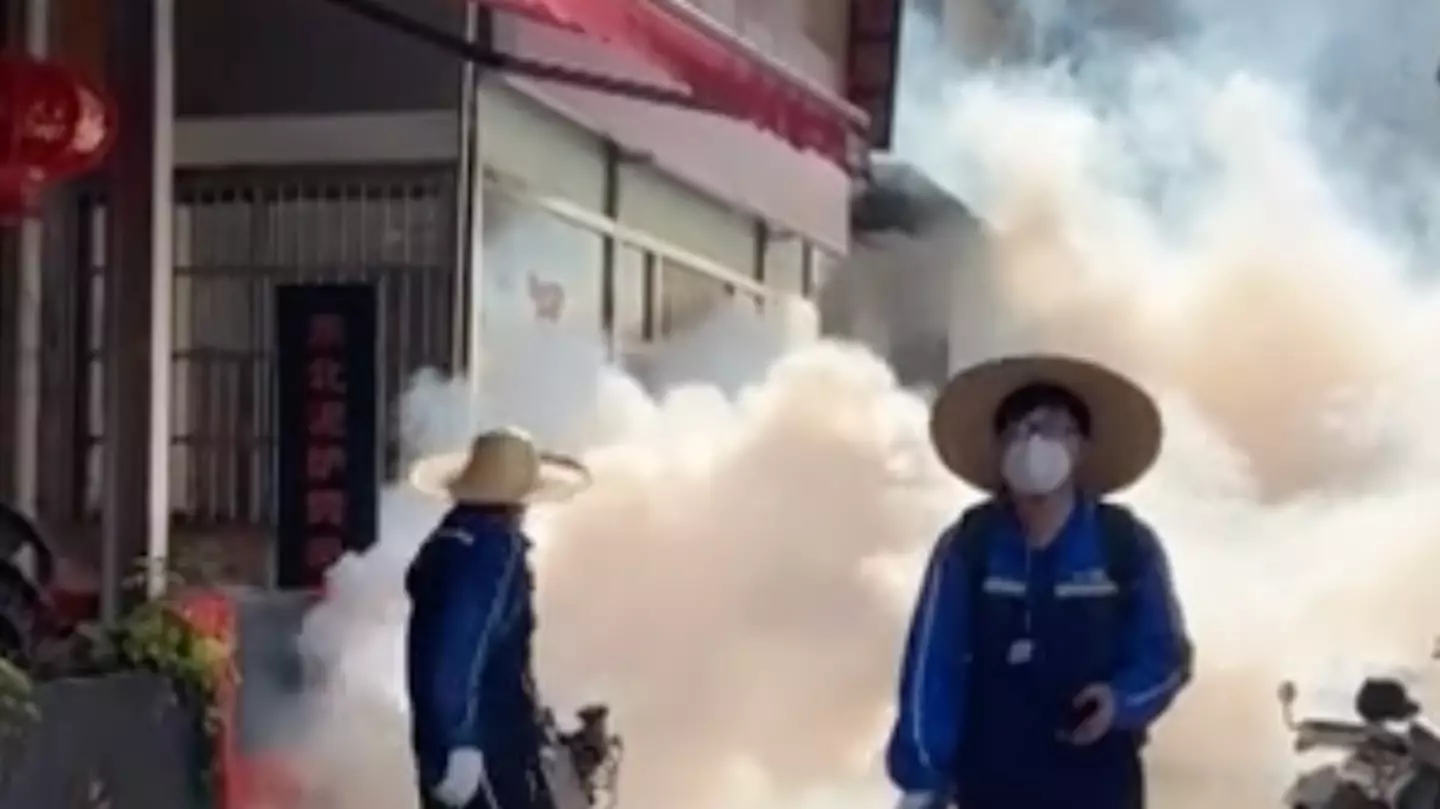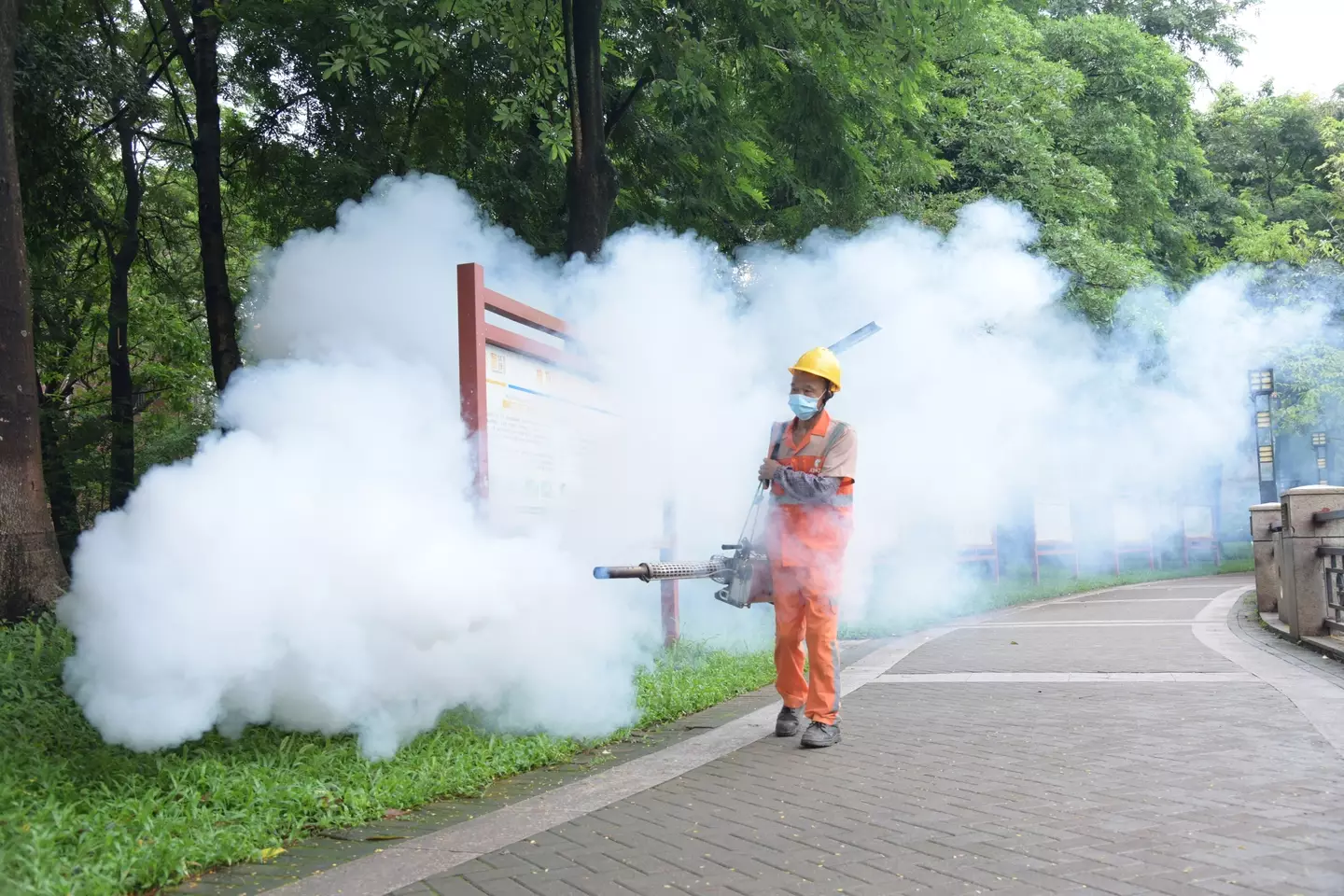
China has been pulling out all of the stops to contain the spread of the Chikungunya virus.
The country is currently doing anything it can to stop the number of infections rising any further, as authorities have already reported more than 10,000 cases nationwide so far.
There's over 7,000 people in the city of Foshan alone who have Chikungunya, while at least another 3,000 cases have been reported in a dozen other cities.
Cesar Lopez-Camacho, a leading vaccine researcher at the University of Oxford, said that the outbreak appears to be the largest Chikungunya crisis that China has ever seen.
Advert
"What makes this event notable is that Chikungunya has never been established in mainland China before," he said. "This suggests that most of the population had no preexisting immunity, making it easier for the virus to spread quickly."

Outbreaks of the virus are more common in parts of South and South East Asia, as well as Africa and reports say Chikungunya has been identified in 110 countries.
According to the CDC, there's currently a Chikungunya travel health warning for outbreaks in the likes of Bolivia, Kenya and Madagascar.
What is China doing to stop the spread of Chikungunya virus?
Health officials in the China are seemingly thinking along the same lines at Lopez-Camacho, hence why authorities are taking 'forceful and decisive measures' to tackle the issue.
In scenes reminiscent of what we saw during the Covid-19 pandemic, sanitation workers have been spraying insecticide across the streets in the hopes of culling infected mosquitoes.
These pesky insects are responsible for spreading Chikungunya by biting people, so the best way to prevent getting the virus 'is to protect yourself from mosquito bites', the Centres for Disease Control and Prevention (CDC) says.
As well as blasting mozzies with insecticide, Chinese officials are also using drones to aid in the cleanup efforts.
Stagnant water is the perfect breeding ground for mosquitoes and thanks to some unprecedented rainfall in the country, there's a hell of a lot of it right now.
So, authorities are sending drones up into the air to locate areas where there is standing water - which most likely a mosquito has laid eggs in - before getting rid of it.
To ensure locals also follow suit, people have been warned they could face a hefty fine of up to 10,000 yuan (£1,036) if they don't empty outdoor containers that have collected water... and their electricity could also be cut off.

Other water-based tactics include releasing an army of 'mosquito-eating fish' into lakes around Foshan - the worst affected city - to clear out the infected insects who are lounging in stagnant water.
Huge 'elephant mosquitoes' have also been released to eat the smaller Chikungunya-spreading bugs.
What happens to people who have contracted Chikungunya virus?
People who have got the virus - which typically causes a fever, 'severe' joint pain and the possibility of severe complications - have been put on lockdown in hospitals.
Patients in Foshan have to stay under the cover of mosquito nets in their beds and will only be permitted to leave after at least one week has passed, or they test negative for the virus.
Although the Chikungunya virus isn't generally fatal, it can cause life-threatening complications for vulnerable people who might have pre-existing health conditions.
Those who are experiencing any symptoms - with other common ones including swelling around your joints, muscle pain, headaches, nausea, fatigue and a rash - have been urged to head to hospital to get tested.
Chinese Vice-Premier Liu Guozhong visited Foshan last week and instructed authorities to 'strictly implement port health quarantine measures', state news agency Xinhua reported.
He urged city chiefs to 'improve prevention and control measures', 'effectively eliminate mosquitoes' and 'cut off epidemic spread channels' - and it seems they got the message.
Topics: China, World News, News, Health, Chikungunya virus